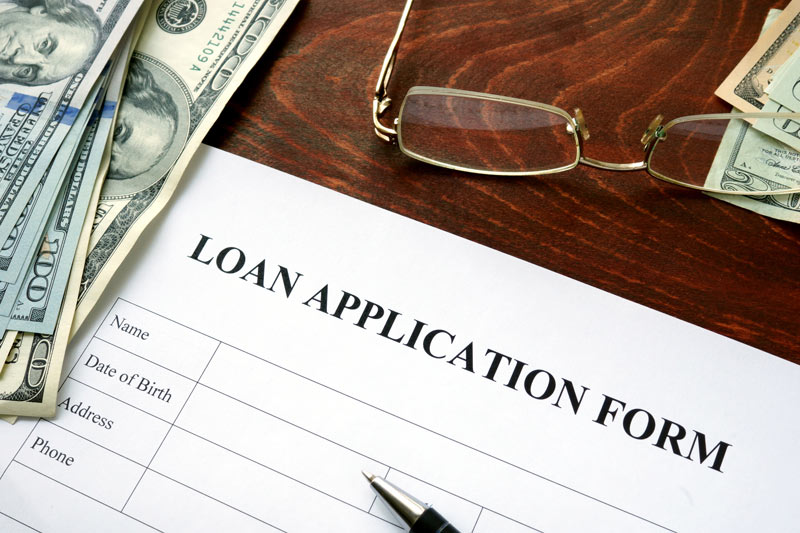With inflation on the rise, it was only a matter of time before interest rates went up as well. After the Federal Reserve raised them for the first time since December 2018, they hinted that we could expect them to go up again at each of their remaining six meetings this year.
If you’ve been planning to buy a house soon, you might have already checked that you met the basic FHA loan requirements. But if interest rates start to climb, will you still be able to get that loan? Will it be enough to buy the house you’ve had your eye on if you still qualify?
Let’s take a look at FHA loans, the current interest rate situation, and how interest rates impact your ability to get a loan.
FHA Loan Requirements
Banks are more lenient with financial qualifications because the federal government backs FHA loans. That makes it less risky for them to loan money to people with less than pristine finances, which lets them offer better terms. Plus, the smaller down payment makes them attractive to first-time homebuyers.
The basic requirements set by the FHA are as follows:
- FICO score
- Minimum 500
- 500-579 requires a 10 percent down payment
- 580 and higher for a 3.5 percent down payment
- Mortgage insurance premium (MIP) required
- Debt-to-income (DTI) ratio below 43 percent
- Home purchased must be a primary residence
- Steady income
- Proof of employment
However, lenders aren’t bound to these minimums and might set the credit score higher to minimize their risk further. You’re likely to get better terms overall if you have a higher credit score than the minimum.
The MIP is one downside to an FHA loan as it’s required regardless of your down payment, and the only way to remove it is to refinance the loan. It’s a critical piece of what makes lenders willing to take on the debt since it’s what actually backs the loan if you default.
The bank decides what ratio it is willing to accept. While the general DTI is 43 percent or less, you can have more debt if you have a good credit score or plenty of cash on hand. The rules set 50 percent as the ceiling, though.
You don’t have to have any particular income level to qualify for an FHA loan, but the lender will consider what kind of work you do and how long you’ve been doing it. They want to see that you can reasonably expect to be earning a similar amount going forward.
Current Interest Rate Situation
Lower interest rates make homes more affordable, but now that the Fed has begun raising them, most experts expect them to hit at least 5 percent by the end of the year.
Higher mortgage rates mean higher monthly payments, which tend to push lower-income households below what’s needed to qualify for a mortgage. When rates are as low as they have been, a 25-basis-point increase impacts a large number of households as they can no longer afford to buy median-priced homes.
This is reflected in the NAHB’s Housing Opportunity Index, which has dropped from 63.2 in 2019 to 54.2 by the end of 2021. A 50 or higher marks an affordable market, which we’ve seen for the past nine years. The higher the rates go, the less affordable it will be for most people to buy a house.
How Rate Increases Impact Your FHA Loan
Changes to interest rates don’t change the requirements for an FHA loan, but they can have an impact on how easily you meet those requirements.
The biggest potential impact is how the rate hike changes the monthly payment amount. Since the ratio of the payment to your income matters, a lender might not want to loan you as much. Your PTI can be as much as 40 percent if you have a higher credit score.
The other immediate impact is on your overall debt picture. FHA loans require your debt-to-income ratio to be 43 percent or less, although you can go as high as 50 percent if you have good enough credit scores.
But every time interest rates go up, any variable-rate debt you have goes up as well. The most likely problem spot here is going to be with your credit cards. Most other debt like student loans, comes with a fixed rate.
What can you do about any of these scenarios? Unfortunately, your first option might be to lower your loan amount. This would bring your mortgage payments into line with your income, but it might mean you can no longer afford the type of house youhad planned for.
You could potentially still buy a more expensive house if you can increase the amount of your down payment. That reduces the overall amount you need to borrow. However, since the ability to do a small down payment is a big attraction of an FHA loan, that might not be the best route to take.
You can also focus on improving other factors in the mix, like lowering your overall debt and raising your FICO score. Either of those can help you qualify for better terms and a higher loan amount.
Ready to Lock in an Interest Rate?
Mortgage rates are destined to go up this year, impacting how well you meet the FHA loan requirements. Higher interest rates hit all of your debt, hurting your ability to qualify for the lowest rates possible if you wait. Get your financing in place early to lock in a rate before that happens, and you end up with higher monthly payments.
Ready to sew up your home loan and lock in a lower rate?Contact us to get the FHA loan application process started so that you can buy your dream home.
7th Level Mortgage is a leading one-stop mortgage company providing deeply informed, custom-tailored assistance with each mortgage transaction phase. If you are searching for a home loan in New Jersey, Pennsylvania, Delaware, Maryland, New York, or Florida, please contact us today so that we can determine the best Mortgage Lender to place your loan with and get you the best possible rate and program.

